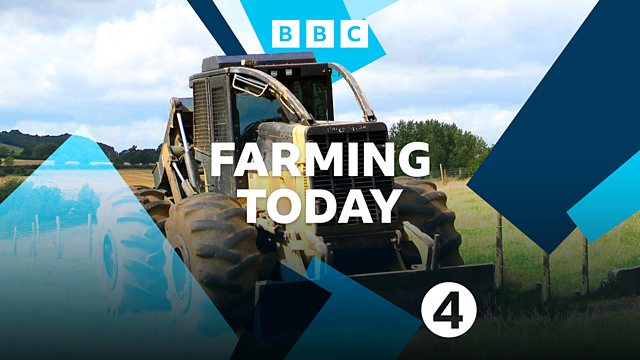
05/06/23 Water scarcity in Scotland; food safety inspections; gene editing
Farmers asked to conserve water in Scotland. Behind the scenes with food inspection team at Felixstowe Port. Gene editing and what changes to the law could mean for farmers.
Farmers are being asked to conserve water as it is currently 'scarce in most of Scotland' according to SEPA, the Scottish Environment Protection Agency. It says 12 areas in the Northwest and Southern Central regions have been put on alert and businesses extracting water are being urged to put their water scarcity plans into action now to reduce pressure on the environment and preserve water resources.Β
When we left the EU, the government delayed introducing a new system for checking food imported from the EU, although UK exporters to the EU have faced checks since the beginning of 2021. The new UK system will be phased in from October meaning big changes for food inspection teams at our ports. More than double the amount of food and live animals are imported from the EU than the rest of the world. A 100-strong team works at Felixstowe port in Suffolk to keep the food on our plates safe to eat and we hear from some of the staff on the front line.
All week we're looking at gene editing. It was promoted as a Brexit benefit and the government in England has changed the law to allow the development and marketing of gene edited crops. In Scotland, Wales and Northern Ireland the law hasn't changed. Gene Editing is not the same as genetic modification - GE allows researchers to make a specific edit to a plant's DNA, no new genes are added as they would be in GM plants. This week we'll hear what impact the change in the English regulations is having and discuss some of the concerns that are being raised. We start off by hearing from Jim Dunwell professor of plant bio-technology at Reading University.
Presenter = Charlotte Smith
Producer = Rebecca Rooney
Last on
Broadcast
- Mon 5 Jun 2023 05:45Βι¶ΉΤΌΕΔ Radio 4
Podcast
-
![]()
Farming Today
The latest news about food, farming and the countryside

